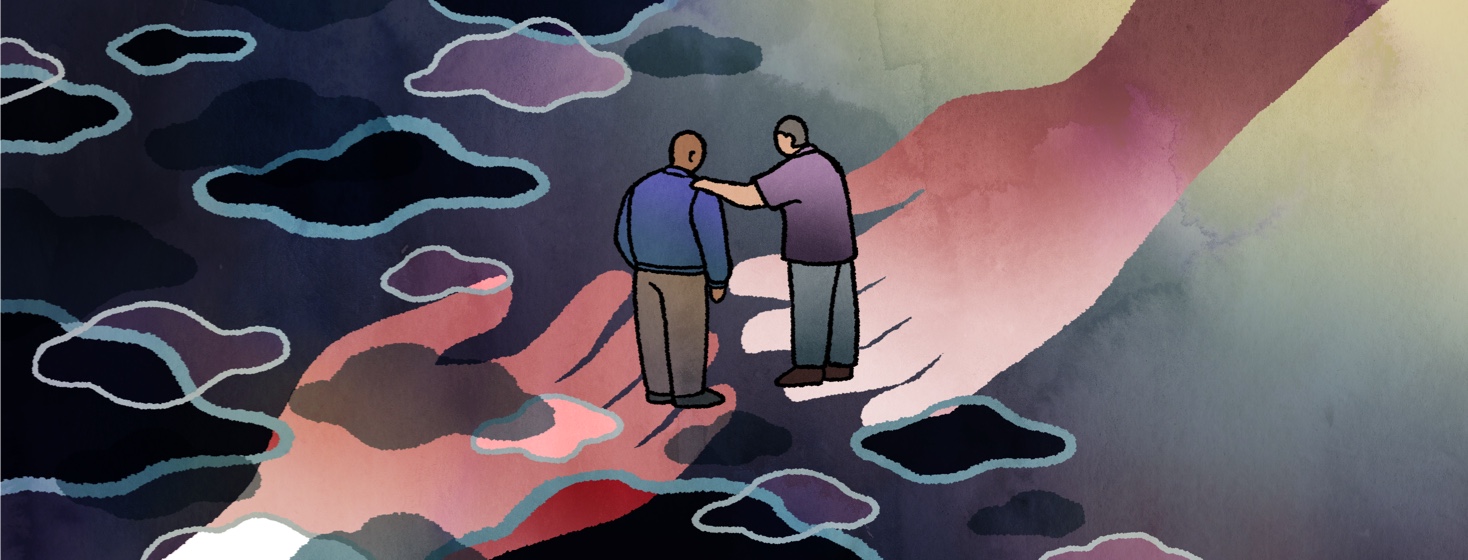The Downside of Isolation
I have been reading Together -- The Healing Power of Human Connection in a Sometimes Lonely World by Dr. Vivek Murthy and it got me thinking about the many men I have met over the past 8 years who have chosen to “shelter in silence” following a prostate cancer diagnosis and who to this day chose to remain isolated.
Getting my affairs in order
My initial experience came with my diagnosis in January of 2013. Due to the aggressiveness of the cancer, my wife and I meet first with our attorney and then with our financial advisor to discuss changes with investment choices along with updating our wills, powers of attorney and my “do not resuscitate” wishes.
The meetings went well. Then 2 days before surgery my financial advisor Richard (not his real name for reasons I will cover) called saying his office was close to the hospital and that he would stop in for a visit. He asked many questions about my upcoming surgery, the diagnosis, and more. I was surprised by his apparent knowledge. Most men do not have a clue.
Why some men stay silent
April 15, 2013 – was my “taxing day” for many reasons including saying good-bye to my 70-year-old prostate. Richard never showed up for the promised visit. About 6 weeks later his business partner called and told me that Richard had been diagnosed with fully metastasized cancer several months before and for business reasons he had told no one.
I learned that Richard had avoided MD offices for years and when finally diagnosed, he refused radiation, chemo, and more. Why? He did not want clients to worry or – move their assets to another investment advisor. His greatest fear was a loss of hair on his head due to chemo treatments.
I also discovered that he had been working and calling his clients from home after his doctors told him it was time to put his affairs in order. Richard passed a few days after that partner called me alone and only a few knowing of his situation. When I followed up with his family, to see if we could do a memorial for him I discovered that even in death he wanted no one to know he had been impacted by prostate cancer. I was speechless.
Self-imposed isolation can be damaging
Dr. Murthy points out in his book that self-imposed isolation can cause the damaging effects of stress and anxiety. Even the National Academy of Science, Engineering and Medicine notes that social isolation increases the risk of dementia by 50% and can increase the risk of heart disease and stroke by 30%.1
While a prostate cancer diagnosis can make you feel like your life is over or that you are not the man you use to be -- reaching out to help others is a powerful experience and it has helped me form connections and reaffirmed who I am -- exactly when I desperately need emotional support.
Don't close yourself off from support
If you are diagnosed with prostate cancer or experienced a reoccurrence as I did, my advice is to stop isolating yourself. Pick up the phone and call someone. If you cannot bring yourself to visit someone in person speaking on a phone can work as well. Speaking and listening give you an opportunity to hear things in a person’s voice that you simply cannot get in text message or e-mail.
Ideally, in time you will want to meet people face to face. When speaking to others take care to listen to what they are saying vs. waiting to make your next point. If you cannot meet in person, consider the power of video conferencing on your cell phone or computer.
You can choose silence as Richard did -- or you can reach out to others and build new connections and in the process gain a better understanding and appreciation for what it means to connect in a meaningful way with others. Prostate cancer has taught me a lot about engaging others at a deeper level. And just perhaps as it has done for me, your prostate cancer will allow you to form new and lasting connections that you never would have dreamed possible.

Join the conversation